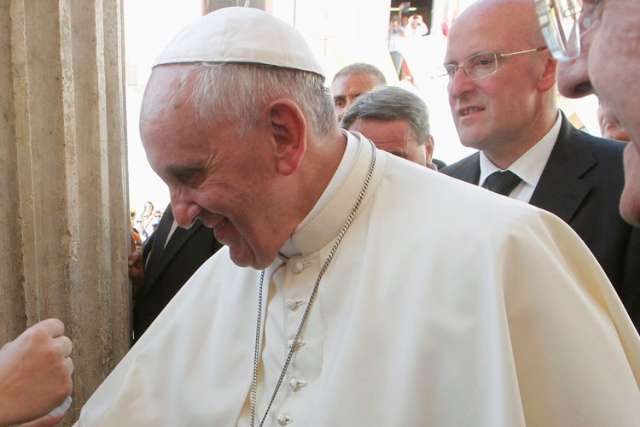The victim, Marie Kane, also asked the Pope to remove Cardinal Sean Brady as archbishop of Armagh, Northern Ireland. Kane, 43, told Ireland's state-run radio RTE that she asked Pope Francis to remove Brady due to his handling of a clerical child abuse inquiry in 1975.
Brady was the subject of sharp criticism after a 2012 documentary revealed that he had been involved in a 1975 canonical inquiry into a notorious abuser-priest, Norbertine Father Brendan Smyth. Despite the canonical process, Smyth evaded the civil authorities for decades and went on to abuse in Northern Ireland, the Irish Republic and the United States before finally being arrested in 1994.
"It's a big thing with me that there are still members of the hierarchy there who were involved in the cover-up. I feel personally they (the Church) cannot contemplate any change happening, there will be no success," as long as such people remained in place, she said.
Kane said she told the pontiff that "cover-up is still happening, and you have the power to make these changes." There were others besides Brady, she said, but "I didn't want to go into a litany." She said that Pope Francis responded that "it was difficult to make these changes," she added, "but it's a big thing with me that Sean Brady is gone."
On Aug. 16, Brady turns 75 and, under canon law, will be obliged to submit his resignation as archbishop of Armagh. Canon law does not require the Pope to accept a resignation.
Kane, one of six survivors who met the Pope at the Vatican, said she met with him privately for about 20 minutes. She was accompanied by Marie Collins, also an abuse survivor and a member of the new Pontifical Commission for the Protection of Minors, which met July 6 at the Vatican.
Apart from seeking the removal of Brady, the rest of Kane's discussion with Pope Francis was "more personal" she said. She discussed the effect of her abuse and its subsequent handling by the Church on her two children, ages 18 and 14.
"They have no belief in the Church in any shape or form," she told RTE.
She said she found Pope Francis "very, very humble. There was no standing on ceremony. No pomp. I felt very comfortable, relaxed. He seemed genuinely frustrated at what he was hearing. He listened and seemed genuine. There was a lot of empathy. There was no looking at watches. I was the one who ended it as I had said all I wanted to say."


